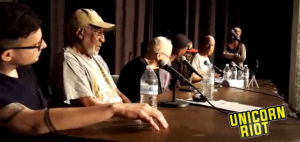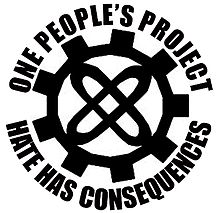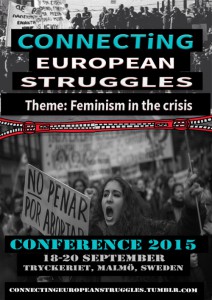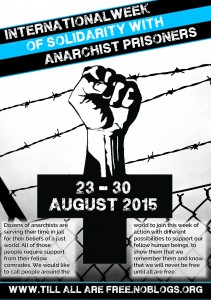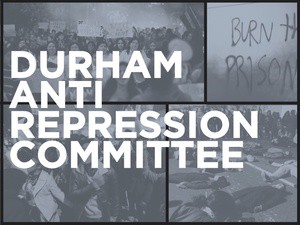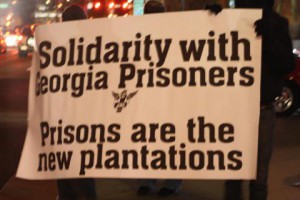Jessie Burlew

This week Bursts spoke with Beth, a member of Phoenix Anarchist Black Cross and a member of the Support Jessie B committee about the case of Jessica Burlew. Jessie is a now-18 year old woman on the autism spectrum and diagnosed with schitzo-effective disorder who’s been held in solitary confinement as a protective measure in a Maricopa County Jail. She’s being charged by the state in the death during a sexual encounter with her 42 year old man 2 years ago in what even coroners have deemed to be accidental. We talk about Beth’s case, about gender and courts, about child welfare, mental health and advocacy in the criminal system of Arizona.
More on the case can be found at http://freejessieb.org
Announcements…
Marius Mason is an anarchist, an environmental and animal rights prisoner serving nearly 22 years in federal prison for acts of sabotage carried out in defense of the planet. No one was injured in any of these actions. After being threatened with a life sentence in 2009, he pleaded guilty to charges of arson at a Michigan State University lab researching Genetically Modified Organisms for Monsanto, and admitted to 12 other acts of property damage. The sentencing judge applied a so-called “terrorism enhancement” to his term which added almost two more years than the maximum requested by the prosecution. This is the harshest punishment of anyone convicted of environmental sabotage to date.
Marius is incarcerated in the high security Administration Unit at the Federal Medical Center Carswell in Fort Worth, Texas. According to the prison’s own literature, the unit is “designed for female inmates with histories of escapes, chronic behavior problems, repeated incidents of assaultive or predatory behavior, or other special management concerns.” Marius has never violated any prison rules. Clearly, he is being held in this unit because of his political beliefs and in an effort to silence him.
The unit is frequently and unpredictably locked down for hours on end due to violence and suicide attempts resulting from the claustrophobic and oppressive conditions. Prisoners leave the building for medical treatment, but only after a protracted wait and fierce advocacy on the part of the prisoner even though Carswell is ostensibly a medical facility. Access to mental health counseling, medical care, and educational opportunities are greatly diminished because of security issues.
Due to shifting policies Marius unit is only accepting mail addresssed to Marie (Marius) Mason. This change has felt like a big step back in his plea to begin his transition (Mason is a transgender man). Additionally he has recieved little to no mail in the past weeks, leaving him in almost complete isolation from the outside world.
It’s asked that people write to him, to let him and the prison administration know that folks are keeping an eye on his situation.
Address letters to:
Marie (Marius) Mason 04672-061
FMC Carswell
Federal Medical Center
PO Box 27137
Fort Worth, Texas 76127
More about him and his case can be found at http://supportmariusmason.org
. … . ..
We have just received word that Eric’s trial is likely to be continued yet again. Eric’s public defender has entered a motion to continue his trial date until March 8th, so that we can have more time to prepare for trial or otherwise resolve the case. We expect that the judge will grant the motion.
As you may know, it’s been over a year since Eric’s arrest and pre-trial incarceration at CCA Leavenworth (a private prison operated by the Corrections Corporation of America) in Leavenworth, Kansas. Although for Eric and the rest of us it feels like it’s been a very long time, for a trial of this caliber, it’s pretty standard to spend a couple years in prison awaiting trial.
Many warm thank you’s to all those who have been making preparations to come to Kansas City for the trial. We hope to be able to give plenty of notice so that people can make clear plans to attend trial and show their support. We hope that, should Eric’s case go trial, friends and comrades will fill the courtroom.
We are also happy to report that Eric’s mail situation seems to be improving! Thanks to all of the efforts of people across the country to pressure the CCA mailroom to abide by the laws it purport to uphold. Although we dream of a world without “laws” or “rights,” in the meantime we’ll do what we can to keep our friend’s mail out of the trash. Thanks to all those who were willing to join in the effort!
For now, you can help by writing a letter to Eric, hosting a letter-writing night for him, donating money to his legal fund or buying a t-shirt. The road before us is long and expensive and it’s going to take a lot of support to get through it. Again, many thanks to all of you who have continued to show your support throughout this arduous process.
Link to Eric’s Fundraiser
https://fundrazr.com/campaigns/0yo
You can see more about Eric’s case at http://supportericking.wordpress.com
Eric’s Address:
Eric King
27090045
CCA Leavenworth
100 Highway Terrace
Leavenworth, KS 66048
. … . ..
This from https://rally.org/f/5os4KR80OFc, a fundraising site being used by supporters of Janey Waller, arrested in an obvious case of racial profiling, in which the cops said he “fit the description” of a crime he did not commit. A witness to the “crime” immediately confirmed that Janye had nothing to do with it, but Janye was still taken into custody where he was questioned and then leveled with serious charges related to last year’s protests in Oakland against the non-indictments for the murders of Michael Brown and Eric Garner.
JANYE WALLER IS A YOUNG BLACK ACTIVIST, A LOCAL OF THE SAN FRANCISCO BAY AREA. He lives and works in Oakland, providing financial support to his mother, his two younger brothers, and his cousin. He attended Berkeley Community College where he planned to major in Accounting, but had to take leave in order to help support his family, and he hopes to return to college soon. Janye also volunteers at a social center in West Oakland that works to empower black and indigenous people living in the Bay Area through education and mutual aid. Within this space Janye works tirelessly, helping coordinate and administer programs focusing on skills like urban farming, which foster both community and individual autonomy.
JANYE IS THE ONLY PERSON WHO IS CURRENTLY FACING SERIOUS CHARGES AFTER THOUSANDS OF PEOPLE FLOODED THE STREETS DURING THE WAVE OF PROTESTS IN THE BAY AREA LAST WINTER. After several high profile police killings of young black men, the Bay Area, like much of the rest of the country, surged into a wave of protest and resistance. The state responded by using the legal system as a tool of repression, threatening incarceration and steep fines for some of those involved in these actions. It is sad but obvious that the one person getting targeted for that beautiful moment of protest is a strong and politicized young black man.
IT IS GOING TO TAKE TIME AND MONEY TO FIGHT THESE CHARGES. The legal process saps significant resources. Janye needs help with the costs of legal defense and the substantial bail amount that he borrowed.
Other ways you can help: COME OUT TO SUPPORT HIM IN COURT! This matters! Next court date: Monday Oct 19th, 9am, Wiley Manuel courthouse Dept 115. Also: HELP JANYE FIND A STABLE JOB! GET IN TOUCH!
Please give whatever you can and let others know.
email – freejanye@gmail.com
. … . ..
In anarchy radio news, check out this newly minted podcast The Brilliant, which is recorded out of Berkley CA and features co hosts Aragorn! of Little Black Cart (an anrchist publishing house) and Bellamy formerly of Free Radical Radio. The Brilliant self describes as “an attempt to tell different kinds of stories, ones with complex moral plays, ones that aren’t so clearly stories, and ones that are of human size. Their motivation to tell these tales is a desire to see a proliferation of different stories and not just the simple morality plays of popular culture or the inverted, but otherwise identical, stories of the radical milieu.” Check out their archives, and stay tuned for upcoming episodes, at http://thebrilliant.org
. … . ..
Since Sean Swain is still on communications blackout, Rydra of Free Radical Radio was kind enough to provide voice over for this week’s segment.


